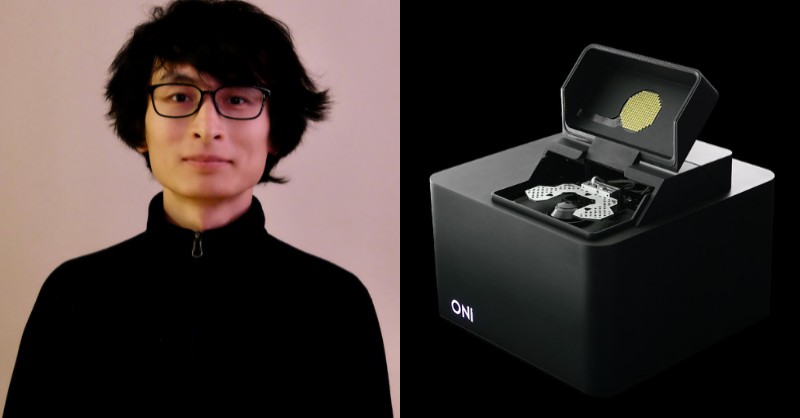ONI is an Oxford-based biotech startup that developed a super-resolution microscope, which lets scientists see inside cells and see how individual molecules interact and cause disease. Now, the company has closed $75 million funding in Series B funding.
The financing round was led by ARCH Venture Partners and Casdin Capital along with participation from Section 32, ARTIS Ventures, Vertical Venture Partners, Axon Ventures and private investors including Paul Conley. Also, existing investors including Oxford Science Enterprises took part in this round.
Growth plans
ONI will use the proceeds of this round to grow its commercial and R&D teams in the US and Asia and drive technology adoption in these regions. Also, it will expand its portfolio of consumables and cloud-based software apps. ONI wants to provide end-to-end automated solutions for application verticals with the first two applications being extracellular vesicles and cell therapy, especially chimeric antigen T-cell (CAR-T) therapy.
“ONI’s technology democratises cutting-edge science, enabling researchers to develop new angles to explore and understand the complexity of biological systems at super-resolution,” said Keith Crandell, Co-founder and Managing Director at ARCH Venture Partners. “The more we understand about these intricate systems, the closer we will get to engineering biology. This single-molecule information and the light it sheds on disease mechanisms will allow possibilities that were previously unimaginable in the design of novel therapeutics and diagnostics.”
“Innovative tools that drive biological insights and technologies to elucidate cell biology at high resolution represent the next critical wave of discovery and application,” said Shaun Rodriguez, Director of Life Science Research at Casdin Capital. “Realizing this immense opportunity requires technologies that are readily accessible to many researchers, and the talented team at ONI are uniquely capable of driving broad adoption of this platform to disrupt large and important end markets.”
Appoints new executives
Besides the investment, Keith Crandell, co-founder and Managing Director at ARCH Venture Partners, and Shaun Rodriguez, Director of Life Science Research at Casdin Capital, have joined ONI’s board of directors in addition to Patrick Finn, Chief Commercial Officer at Twist Bioscience who joined in 2021.
“Since our founding, we have placed over 120 Nanoimagers and have empowered over 650 scientists with accessible single molecule technology,” said Bo Jing, founder & CEO of ONI. “We are proud that our products have added unique insights to the biomedical research of our customers and that they have accumulated more than 110 scientific publications over the past several years, with that number rapidly rising. I would like to thank all of our investors for their solidarity with ONI’s mission to democratize this fundamental discovery tool. We look forward to learning from Keith and Shaun who have joined our board and welcome their guidance for the next phase of growth.”
Nanoimager: All you need to about
ONI was founded by Bo Jing as a spin-out of Oxford University in 2016 is getting the interest from more and more life science researchers and pharma companies. Customers using its products include leading laboratories across the globe including the Universities of Oxford, Cambridge and Harvard.
Nanoimager, ONI’s flagship product is the world’s first desktop super-resolution microscope. It is capable of visualising, tracking and imaging individual molecules in living cells with 20nm resolution. The microscope offers easy access to a range of super-resolution techniques including dSTORM and PALM, as well as smFRET, single-particle tracking and confocal.
The company continuously develops new instruments, applications and AI-powered software to fulfil the potential of super-resolution microscopy. Also, they want to make it accessible to all researchers.
ONI’s single-molecule microscopy technology will fundamentally change the way that biological questions are addressed with wide-ranging implications in biomedical research and in the development of novel therapies and diagnostic tests. The company wants to accelerate human discovery and fight disease and bring super-resolution microscopy to novel frontiers.















